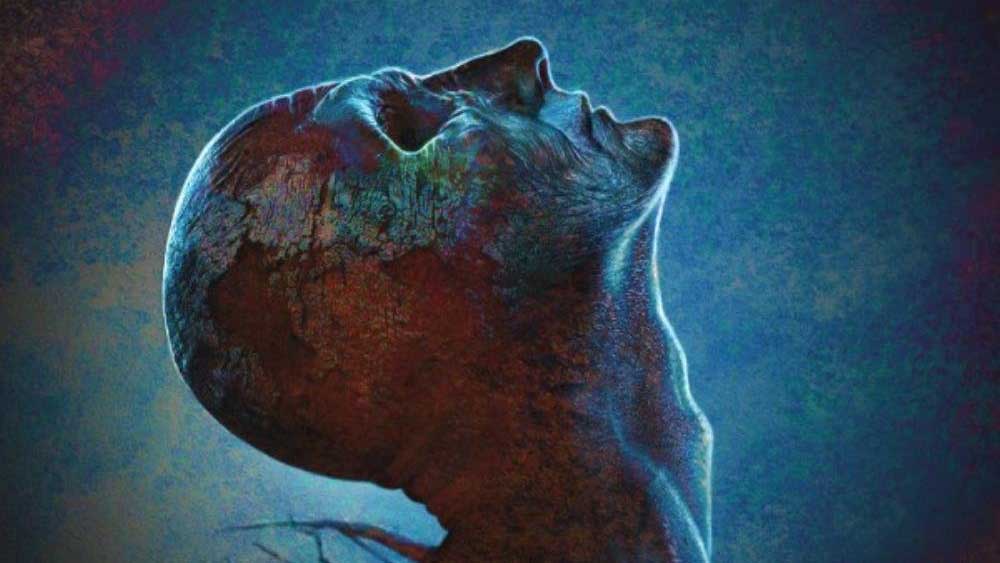And so this is it. The end. Last orders on a career that has finished where it began more than 40 years ago, in the heart of Lothian, having circled the globe a hundred times over, taking in all the boozy highs and red-eyed lows life has to offer. The old warrior-poet is draining his glass one final time, proud of everything he’s achieved but aching-boned and world-weary. He’s almost done with this, almost ready to retire to his garden and write books and screenplays. Almost, but not quite.
It’s been five years since Fish announced that his next album – this one – would be his last. At times it looked like he’d never even make it this far. The catalogue of woes which have plagued the big man since 2013’s A Feast Of Consequences are enough to fill an entire volume of his oft-mooted autobiography: ailed romances and family bereavements, hand surgery, spinal operations, writer’s block, two bouts of sepsis, one near-death experience and a full-blown global pandemic.
All that bedevilment could have scuppered Weltschmerz a long time ago. Instead, it’s conspired to produce the best album of his solo career, one that is lush and expansive yet intimate and personal, sometimes angry, sometimes dejected, but never anything less than magnetic.
Fish has said that Weltschmerz is an album informed by “the pain of the world”, as the rough English translation of the title suggests. In fact there’s so much pain of the personal, political and societal varieties going on that it’s impossible to cram it onto a single album, hence its 10 songs are spread over two discs. But neither an epic running time nor existential heaviness weigh it down: Weltschmerz is leaner than any 85-minute album has a right to be.
Much of what he’s been through in the last few years is addressed here. Eight-minute opening track The Grace Of God begins with the beeping of an ECG machine and the dislocated words of a doctor giving assurances to a patient just before they go under. Against a backdrop of throbbing menace, Fish conjures vivid images of canulas probing under the skin of withered arms and a body ‘pinned down on a table at the mercy of machines’. However halfway through, it suddenly pivots and the song opens up into something grander and more cinematic, all sweeping strings and intricate production (credit to Calum Malcolm: Weltschmerz is by far the best-produced album the singer has released under his own name).
Autobiographical threads are woven throughout. The deceptively sparkling Walking On Eggshells updates the themes of toxic co-dependency and volatile relationships he first mined on Marillion’s 1983 track Jigsaw (he’s alluded to the song being based on personal experience). The brooding, nocturnal Little Man What Now? addresses the death of Fish’s father and the bleak emptiness that followed; depression informs Waverley Steps, the tale of a life unravelling that the singer has implied could easily have mirrored his own.
It’s not all bleak introspection and soulsearching. The seething Man With A Stick is an on-the-money takedown of police brutality, while the album’s 17-minute centrepiece, Rose Of Damascus, ties together geo-political upheaval, religious fundamentalism, terrorism, immigration and Fish’s newfound passion for horticulture (at least half of the album’s songs reference flowers or gardening). It’s a grand suite of a song, built on shifting musical and emotional sands, but it’s a world away from the bloated self-regard that sometimes comes with the territory.
But mostly, this is Fish singing about Fish in one way or another, whether the jaunty celtic reel of The Party’s Over (‘I’m calling it a day/Enough of all this bullshit…’) or the unbearably moving Garden Of Remembrance, the story of absence and loss inspired by his mother’s dementia. The latter is made doubly poignant by the fact that it sounds like the closing chapter of a book that opened with 1990’s A Gentleman’s Excuse Me.
That’s not the only callback to the past on Weltschmerz. Sometimes they’re barely noticeable, perhaps unintentional, the fleeting recognition of a half-familiar phrase (it’s hard to hear ‘Pandora’s box’ on Rose Of Damascus without thinking of Marillion’s Fugazi). Other times it’s explicit: the closing title track, which sees our man railing against the state of the world, is pretty much Market Square Heroes 40 years on, the blazing fury of youth tamed but still burning. Maybe it’s a deliberate closing of the circle, maybe it’s not. Either way, it’s a hell of a way to finish an album. And a career.
Of course, Fish’s career isn’t done, just the side of it that involves making music. Assuming he keeps his promise, it’ll be strange not to have him around: he leaves a giant hole in a scene that’s short on honest to God characters. But as far as valedictions go, they don’t come any better than this.

